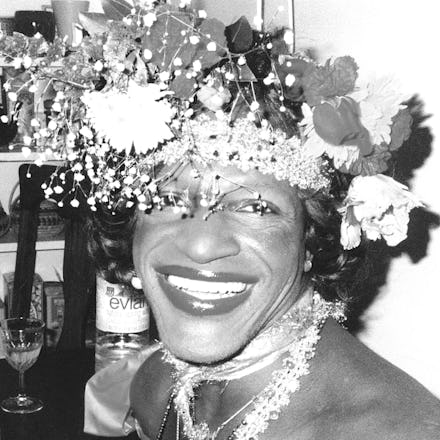Marsha P. Johnson

This article is a part of the Black Monuments Project, which imagines a world that celebrates Black heroes in 54 U.S. states and territories.
The recent controversy surrounding Marsha P. Johnson’s story — specifically the Netflix documentary that attempts to tell it, and the allegations leveled by transgender filmmaker Reina Gossett that it was based on her uncredited research — is an unfortunate development that nevertheless seems appropriate to such a tumultuous and passionate a life.
Johnson, born in 1945 in Elizabeth, New Jersey, did little halfway. She was a proud, black transgender rights activist at a time when most of America lacked both the vocabulary and empathy to presume such rights were worth their investment (sadly, this hasn’t changed much). She was among the first to confront police during the Stonewall rebellion of 1969, which is remembered as perhaps the defining catalyst of the gay liberation movement.

Johnson poured into her work and community, which earned her the love and admiration of much of the Greenwich Village neighborhood she called home. People referred to her as “mayor of Christopher Street.” To much of the mainstream today, she remains a little-known hero of the LGBTQ rights struggle, a black woman whose deeply intersectional outlook on organizing seems that much further ahead of its time considering how revolutionary today’s black activism movements’ investment in black LGBTQ rights seem.
Black Lives Matter, with its largely queer and female leadership apparatus, owes a major debt to Johnson and her politics. The gay liberation movement, both past and present, owes arguably an even bigger one. At a time when transgender women of color are being murdered at alarming rates, and the very existence and validity of trans identity remains up for debate to a large segment of the U.S. population, it can feel like we today are still scurrying to catch up to where Johnson had been all along.
It’s rare that a person correctly presages future activist zeitgeists and priorities as presciently as Johnson did. So, for this and a host of other reasons too numerous to list here, Mic’s Black Monuments Project honors her.